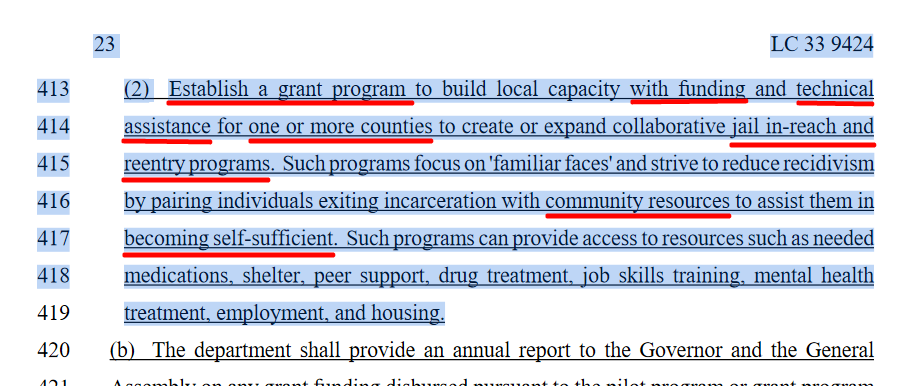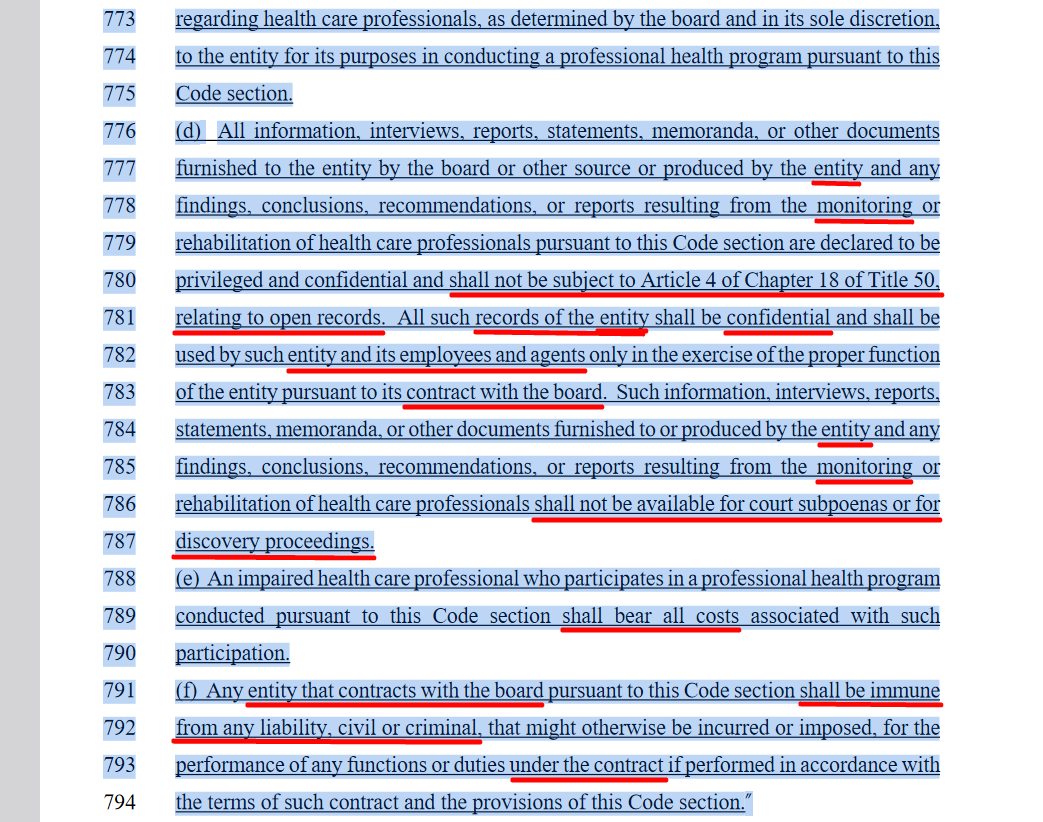Sponsoring Legislation for Personal Enrichment is an Ethical Violation and Conflict of Interest
Passing HB520 Could Easily Enrich Its Lead Sponsor
As a result of a settlement agreement with the US Department of Justice dated Oct 19, 2010, the State of Georgia agreed to systematically, over time, release individuals with various diagnoses of mental illness, housed at the Central State Hospital In Milledgeville. Regarding the manner these individuals were confined, the DOJ sued in Federal Court arguing that Georgia was not in compliance with the Americans with Disabilities Act (ADA). That settlement gave rise to the Georgia Government devising a plan to conform with the agreement’s requirements, a purpose assigned to the Georgia Department of Behavioral Health and Developmental Disabilities (DBHDD), organized in 2009. That department would be charged with the responsibility of conforming Georgia to the DOJ agreement, subject to a review process annually conducted by an independent reviewer. In 2019, Governor Brian Kemp tapped former state representative and Forsyth County Manager, Kevin Tanner, to chair a commission to oversee DBHDD. In 2022 Kemp appointed Tanner to be Commissioner of DBHDD, running the department’s operations.
The problem is that, knowing this settlement required the State of Georgia to electronically monitor thousands individuals released into the community, many who suffer from alcohol or drug addictions, certain Georgia legislators undertook to create and/or invest in a new company, Talitrix, LLC, incorporated in May of 2020, which markets a GPS and bio-metric monitoring device in the form of a sport watch. The sport watch links via the Internet to the Talitrix monitoring facility. The patent is held in the name of three individuals, one of whom is Representative Todd Jones (R-GA25). There are at least two now former Georgia representatives, Marc Morris (formerly R-GA24) and Micah Gravley (formerly R-GA67), working with Talitrix. There are at least two other legislators who have verified ownership, the names of whom I will not here reveal, as they appear to be uninvolved with the day-to-day operations or sponsoring legislation containing conflicts-of-interest. Last year I spoke with one now former Georgia House member who was invited to join and invest, and who said he would have except that he did not have any money. So we know that the opportunity to own and invest in this company has been offered to members of the Georgia legislature, at least to some extent. The importance of that is that those who are tied by investments in the company could be more likely to vote for legislation resulting in its profits. Participating in such a vote during the Georgia General Assembly would define a conflict-of-interest and an ethical breach.
Last year, Representative Todd Jones was lead sponsor of HB1013, entitled the Georgia Mental Health Parity Act. The terms of that legislation created any number of applications for GPS and bio-metric monitoring technology, the very technology Jones’ patented, and whose company sells and services. As I wrote last year, sponsoring a bill to create a market for one’s own products and services, not to mention fund their purchase using taxpayer dollars, is a de facto conflict-of-interest for an elected representative and a violation of the public trust. Fortunately, the senate removed those monitoring provisions in 1013 and they were never passed into law.
That brings us to this years’ HB520, lead-sponsor once again, Representative Jones. This time, in HB520 Jones has not only created several classes among the mentally ill who could be forced to use his product and services to remain out of a state or local facilities, but once contracted with the state, Jones’ legislation also authorizes the taxpayers of Georgia to fund the product’s purchase for statewide programs, and authorizes a grant program for local users to purchase contracted monitoring equipment and services. Furthermore, in HB520 Jones has given monitoring entities blanket civil and criminal immunity. Why would blanket immunity for a monitoring company serve the public good? It wouldn’t. But that provision would certainly be of value for the monitoring company.

Earlier this month, Jones’ company merged with A&A All County Monitoring, as the Talitrix website says, creating an “unparalleled partnership” pairing “two of the largest monitoring companies in Georgia.” If anyone questions that Jones plans to personally sell his company’s services to profit from fulfilling the requirements of the very legislation he has created and sponsored, the fact that he has created an “unparalleled monitoring partnership” to compete for state business should provide the answer. That this monitoring partnership is “unparalleled” means that there would be no monitoring company in the state equipped to better fulfill the purposes of the legislation Jones has sponsored in HB520. Jones has also marketed his product to the State of Tennessee, claims his product is used “across three states,” and has recently announced partnerships with Fulton and Paulding Counties to use his product.
Stated as simply as possible, in answer to a DOJ settlement with the State of Georgia, Representative Todd Jones and perhaps others in similar positions as trusted Georgia elected officials, recognized an opportunity to shape legislation in such a way creating the means for personal enrichment by fulfilling the requirements of the legislation he himself would write, sponsor and pass into law. And we are talking millions of dollars each year once the legislation would be passed and the program in full swing. This is not to say that Jones’ product is not good, or that it is not well-designed to fulfill those requirements, only that as a Georgia legislator, one is not entitled to sponsor legislation with the intended result of achieving personal enrichment. Surprisingly, proposing such legislation does not appear to be against the law. But doing so is certainly a conflict-of-interest, a violation of ethical conduct by an elected official, and if known by the general public would demonstrate that any or all of those involved in such a purpose would not be trustworthy to represent them.







That settlement agreement was from several years ago. There was an agreed schedule of release for the mental patients. They closed down Milledgeville. But I can't tell you what happened to the population previously kept there.
Hi Hank, I'm pretty new to your substack, so I'm trying to catch up. Does this settlement agreement with the DOJ mean that Georgia will release ALL of its mental patients?
Thank you for being the "watchman on the wall" for Georgians. You are a treasure.